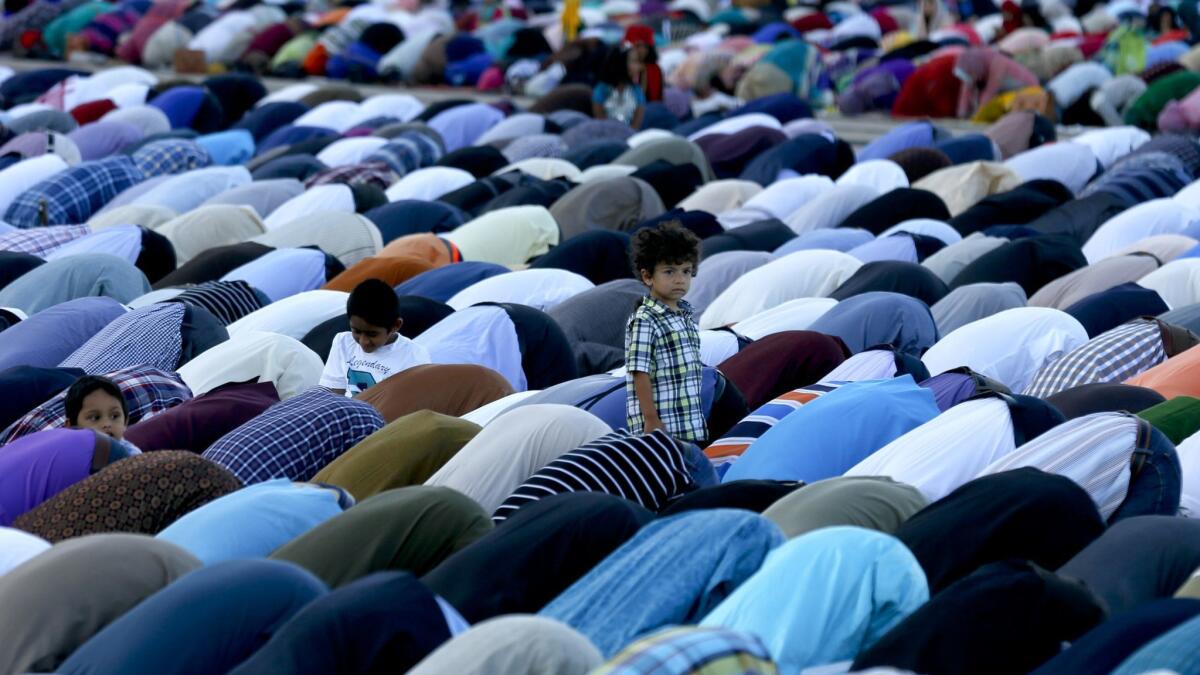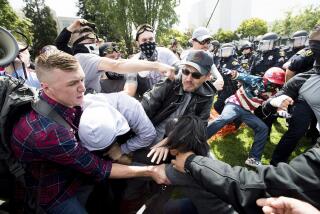9th Circuit revives Muslims’ lawsuit charging FBI with spying at mosques

A federal appeals court decided unanimously Thursday to revive much of a proposed class-action lawsuit brought by Southern California Muslims against the FBI that claims they were subjected to surveillance because of their religion.
The decision by the U.S. 9th Circuit Court of Appeals will return the case to a district court for further review.
The lawsuit, filed by the ACLU of Southern California, alleges that for at least 14 months in 2006 and 2007, the FBI paid a confidential informant to spy on Muslims in Southern California’s mosques and elsewhere.
A federal judge dismissed the bulk of the lawsuit in 2012 after the government argued it could not defend itself without disclosing state secrets.
In a 103-page decision, the 9th Circuit said the district court should not have dismissed claims without more careful review and consideration of ways to continue the case without jeopardizing national security.
In other cases, that has included redacted documents, prepared summaries of the evidence and limited disclosure to lawyers.
Judge Marsha S. Berzon, a Clinton appointee to the 9th Circuit who wrote the decision, acknowledged the case would “reverberate” in the national conversation about how to respond to threats of terrorism “without fueling a climate of fear rooted in stereotypes and discrimination.”
The government’s contention that the suit could not be defended without disclosing matters of national security “does not warrant dismissal of this litigation in its entirety,” the court said.
“The fundamental principles of liberty include devising means of forwarding accountability while assuring national security,” Berzon wrote.
The case arose out of a counterterrorism investigation known as Operation Flex. The Muslim community contended it amounted to “dragnet surveillance” whose purpose was to indiscriminately “gather information on Muslims.”
The FBI contended the operation was intended to prevent terrorist acts and focused on fewer than 25 people.
Craig Monteilh, the paid FBI informant, told the Islamic Center of Irvine that he wanted to convert to Islam.
He attended prayers and donned Muslim robes and a skullcap — and videotaped congregants with a camera hidden inside a button on his shirt.
He gained a reputation for being absentminded: He was forever leaving behind his keys or cell phone. They contained hidden recording devices.
Monteilh said the FBI paid him $177,000 to infiltrate about 12 mosques in Orange, Los Angeles and San Bernardino counties.
His two FBI handlers directed him to find Muslims who could be compromised because of immigration, sexual or business issues, he said.
At first, the Muslim community embraced Monteilh. But members became alarmed when he began talking about violent jihad. They reported him to Irvine police and to the FBI, and obtained a restraining order against him.
The operation did not produce any charges of terrorism. Monteilh eventually broke from the FBI and cooperated with the ACLU.
The 9th Circuit said the district court should determine whether the FBI’s electronic surveillance was “lawfully authorized and conducted” and whether it violated Muslims’ constitutional rights.
The ruling also revived the opportunity for Muslims who were captured by the surveillance to have their records expunged.
Ahilan Arulanantham, an ACLU senior counsel, said he was “very happy” with the decision.
“We didn’t win everything, but we won the opportunity to have the legality of this program assessed, and that is the most important thing,” he said.
The district court will now have to decide “whether this surveillance was lawful, both on religious discrimination grounds and on privacy grounds,” he said.
“That is a significant victory,” he added.
Carl J. Nichols, who represented two FBI supervisors in the case, declined to comment.
“We are reviewing the decision,” he said.
Twitter: @mauradolan
More to Read
Sign up for Essential California
The most important California stories and recommendations in your inbox every morning.
You may occasionally receive promotional content from the Los Angeles Times.











